ABOUT THIS SUSTAINABILITY STATEMENT
Reporting Period, Scope and Boundary
Reporting Frameworks and References
- Bursa Malaysia Securities Berhad (“Bursa Malaysia”) Sustainability Reporting Guide (3rd edition)
- Global Reporting Initiative (“GRI”) Universal Standards 2021
- Sustainability Accounting Standards Board (“SASB”) Sector-Specific Disclosures
Assurance Report
Feedback
Associations and Memberships
- Malaysian Semiconductor Industry Association (“MSIA”): A national platform representing the interests of the semiconductor and electronics manufacturing sectors. MSIA facilitates dialogue with government agencies, regulators, and industry players on matters such as regulatory compliance, trade facilitation, industrial policy, talent development, and ESG practices, including climate-related disclosures.
- Free Industrial Zone Penang Companies’ Association (“FREPENCA”): A collective of companies operating within Penang’s Free Industrial Zones, fostering industrial collaboration, infrastructure advocacy, and regulatory engagement to support operational efficiency and business continuity.
- Penang Skills Development Centre (“PSDC”): An industry-led skills training and talent development centre focused on upskilling and reskilling the local workforce, particularly in technical and high-technology domains.
- Malaysian Employers Federation (“MEF”): A national employer organisation that provides guidance on labour law compliance, employment practices, and workforce management, while representing employer interests in policy dialogues.
KEY EESG HIGHLIGHTS FY2025 (PERFORMANCE DATA)
Sustainability Milestones
Sustainability Policy in the Group’s corporate strategies
Strategies to promote sustainability
Our first Sustainability Report which address pillars of Economic, Environment and Social (“EES”) and its initiative
Covered 15 material topics for sustainability
Sustainability Governance Structure and alignment towards UNSDGs
Emphasise on Environmental, Social & Governance as well as UNSDGs
Sustaining Environmental, Social and Governance (“ESG”) and UNSDGs agenda during pandemic COVID-19
Enhancing sustainability material to 16 topics
Target to reduce 10% of GHG emissions intensity per year in the next 3 years
Installed a solar system at SAM Meerkat and successfully transitioned to a zirconium line at our Thailand facilities which utilises non-toxic chemicals and operates at ambient temperature
Achievement of a 3.4 rating in the FTSE4Good Bursa Malaysia ESG Index
Figure 1: Sustainability Milestones
UNSDG Target Setting
APPROACH TO SUSTAINABILITY
Sustainability Governance
Figure 2: Sustainability Governance Structure of SAMEE
Figure 3: Board Governance on EESG
Stakeholder Engagement
Materiality Assessment
Materiality Matrix
Sustainability Risks and Opportunities
BURSA PERFORMANCE DATA TABLE
APPENDICES
GRI Content Index
SASB Sustainability
Disclosure Topics and Metrics
Aerospace and Defence
Abbreviation
CONTENTS
PERFORMANCE REVIEW
SUSTAINABILITY


